Are you looking for a clear and professional way to notify tenants or property occupants about entering their space? A well-crafted letter can convey the necessary information while maintaining a friendly tone. We'll provide you with a template that ensures you cover all important details, such as the date of entry, the reason for the visit, and any specific instructions. Ready to learn how to create the perfect notice of entry to property? Read on!
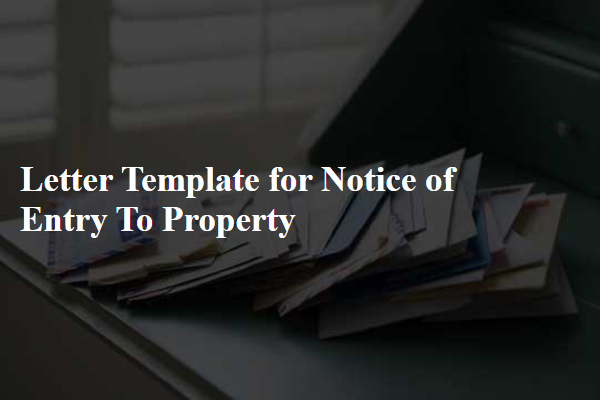
Date and time of entry
A notice of entry to property is an important legal communication usually sent by a landlord or property manager to inform tenants about upcoming inspections, repairs, or showings. The notice typically includes specific details such as the date of entry, which may be scheduled for [insert specific date here, e.g., March 15, 2024], and the time of entry, often ranging from 9:00 AM to 5:00 PM to accommodate the tenant's work schedule. The notice must comply with local regulations, often requiring a minimum notice period of 24 to 48 hours. It is essential to provide clear reasons for the entry, such as routine maintenance or urgent repairs, ensuring tenants understand their rights and the purpose behind the entry. Important contact information for the landlord or management company should also be included for any questions or concerns regarding the scheduled visit.
Purpose and reason for entry
Property entry notices serve as formal notifications to tenants or occupants about upcoming visits by landlords or authorized individuals. These notices typically specify the date and time of entry, which must comply with local regulations, often 24 to 48 hours in advance. The primary purpose of entry may include routine inspections, necessary repairs, or essential maintenance tasks such as plumbing repairs or electrical system checks. Landlords or property managers must also clearly communicate the reason for entry, such as addressing urgent safety hazards like fire alarm testing or ensuring compliance with property regulations. By providing transparent communication about intentions, both parties can foster a respectful and cooperative environment during the property management process.
Contact information for queries
Property owners must provide adequate notice of entry when accessing rental properties, ensuring compliance with local tenancy laws. In many jurisdictions, a standard notice requires a minimum of 24 to 48 hours prior to entry, except in emergencies. Notices must clearly state the date, time, and reason for entry, whether for necessary repairs, inspections, or showings. Including complete contact information, such as phone numbers, email addresses, and physical addresses, allows tenants to raise queries or concerns regarding the entry. This promotes transparency and maintains a cooperative landlord-tenant relationship, fostering trust and compliance with rental agreements.
Access requirements and conditions
Notice of entry to property indicates the legal right of landlords or property managers to access rental units, typically under specific conditions outlined in rental agreements. Notices often include details such as date, time, and purpose of entry, adhering to local laws, which may require notice periods of 24 to 48 hours in many jurisdictions like California or New York. Condition requirements can encompass maintenance checks, emergency repairs, or inspections needed to ensure property safety. Property owners must respect tenant privacy rights during access, ensuring minimal disruption to occupants during entry, as outlined in the terms of the lease agreement.
Legal compliance and rights of tenants
Property owners must adhere to local laws when notifying tenants of entry into rental units. According to the Fair Housing Act, landlords are required to provide reasonable notice--typically 24 to 48 hours--before entering a tenant's residence for maintenance, inspections, or emergencies. Notices must clearly state the purpose of entry, date, and time, while allowing tenants the right to privacy and enjoyment of their home. Additionally, emergency situations, such as gas leaks or flooding, permit immediate entry without prior notice. Overall, respecting tenants' rights ensures compliance with legal standards and fosters positive landlord-tenant relationships.
Letter Template For Notice Of Entry To Property Samples
Letter template of notice of entry to property for final inspection before sale.
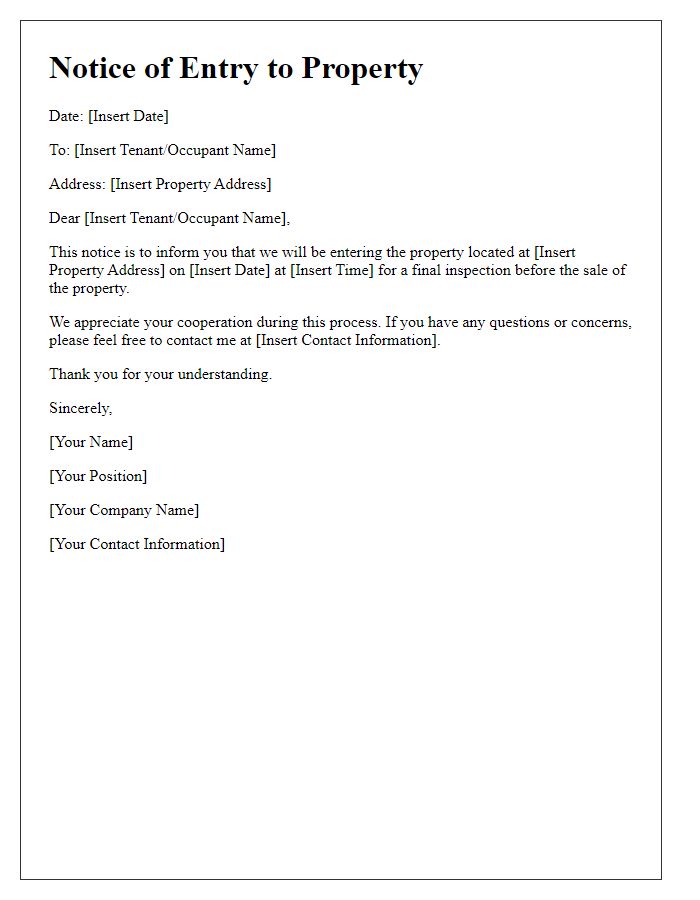
Letter template of notice of entry to property for pest control treatment.
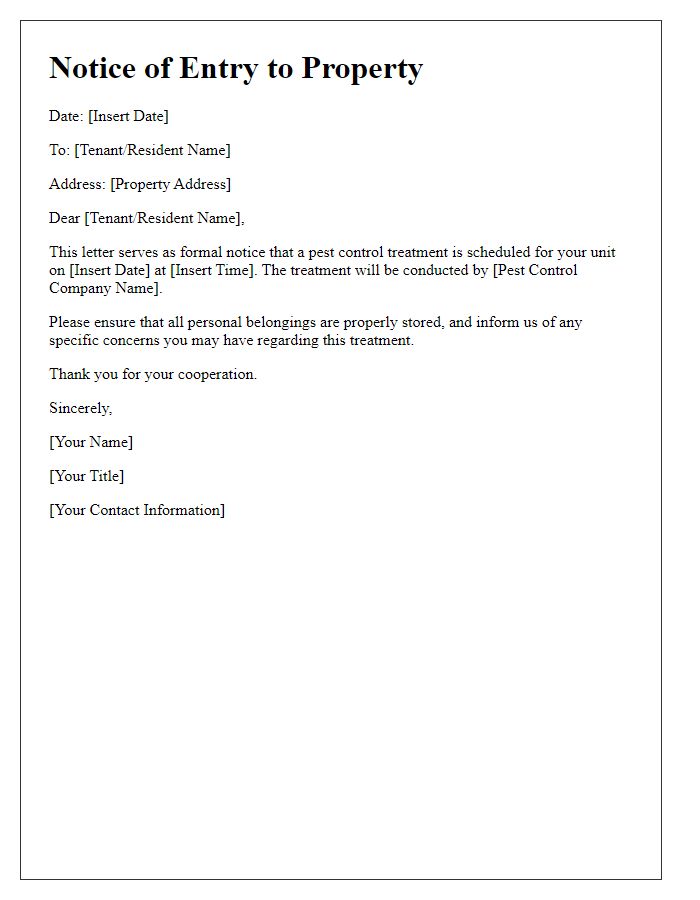
Letter template of notice of entry to property for utility installation.
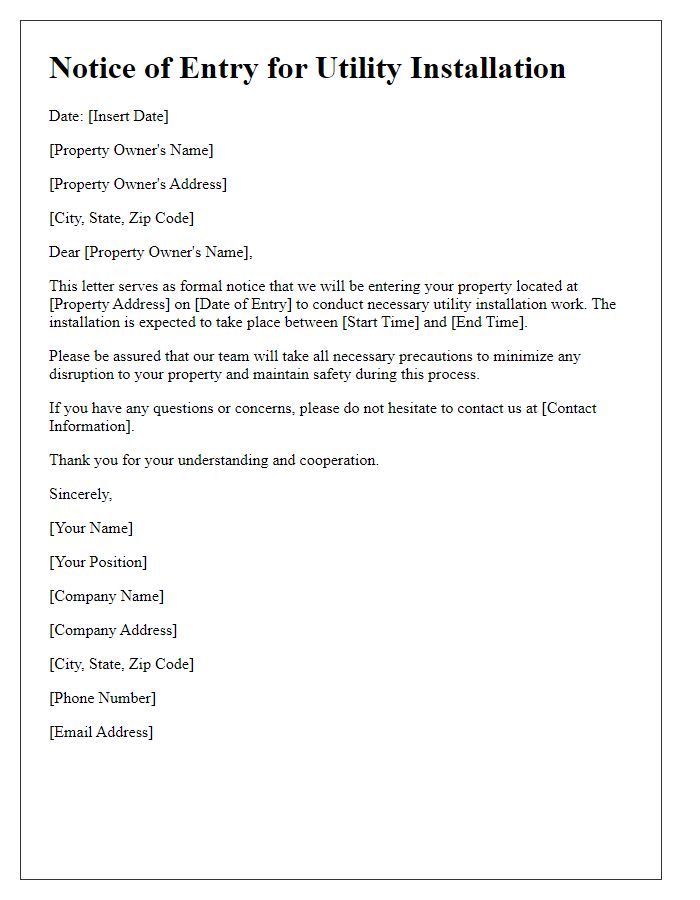
Letter template of notice of entry to property for scheduled renovations.
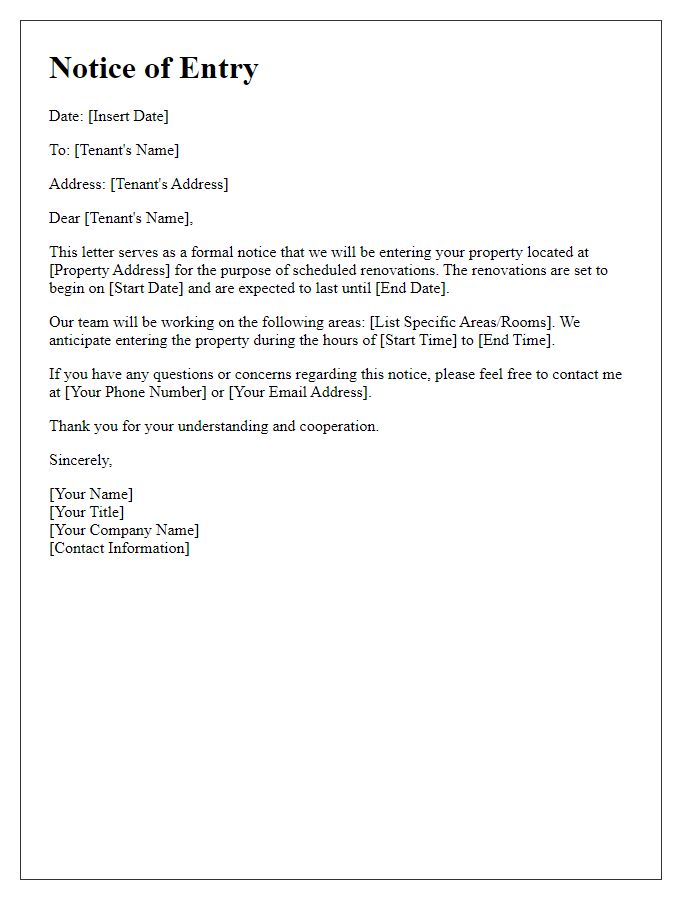

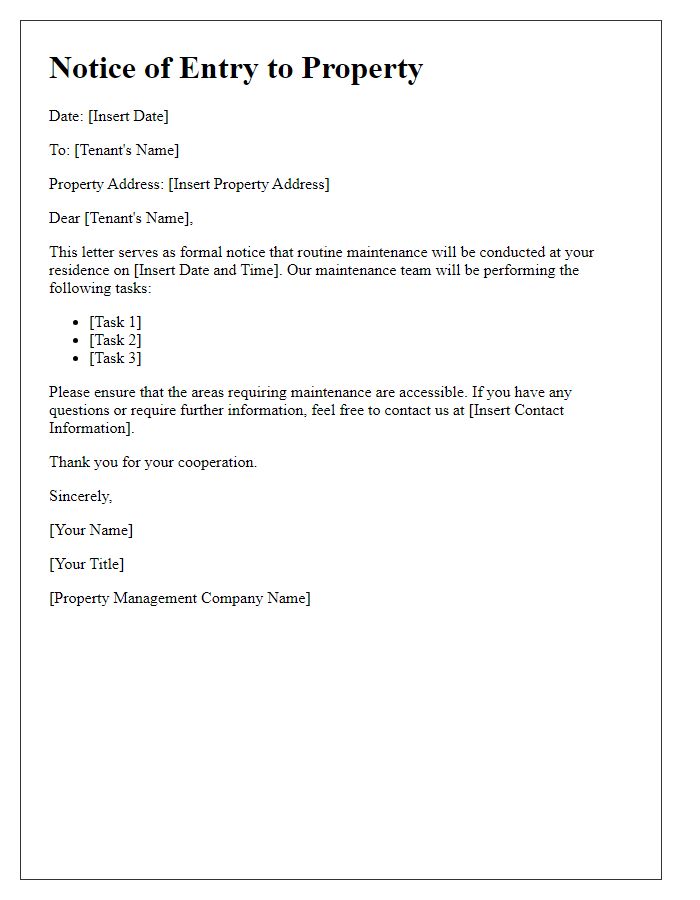
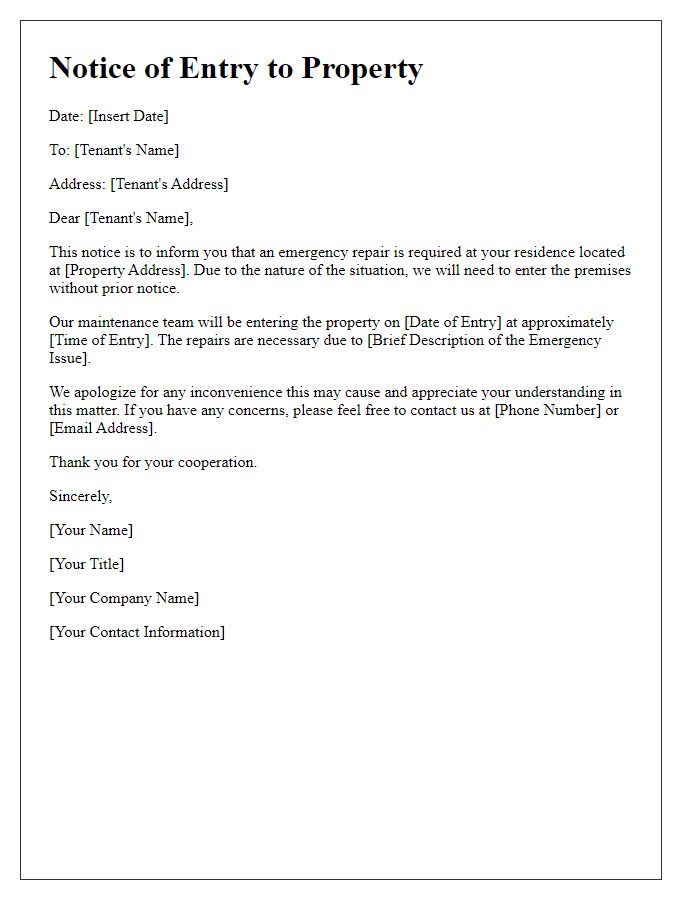
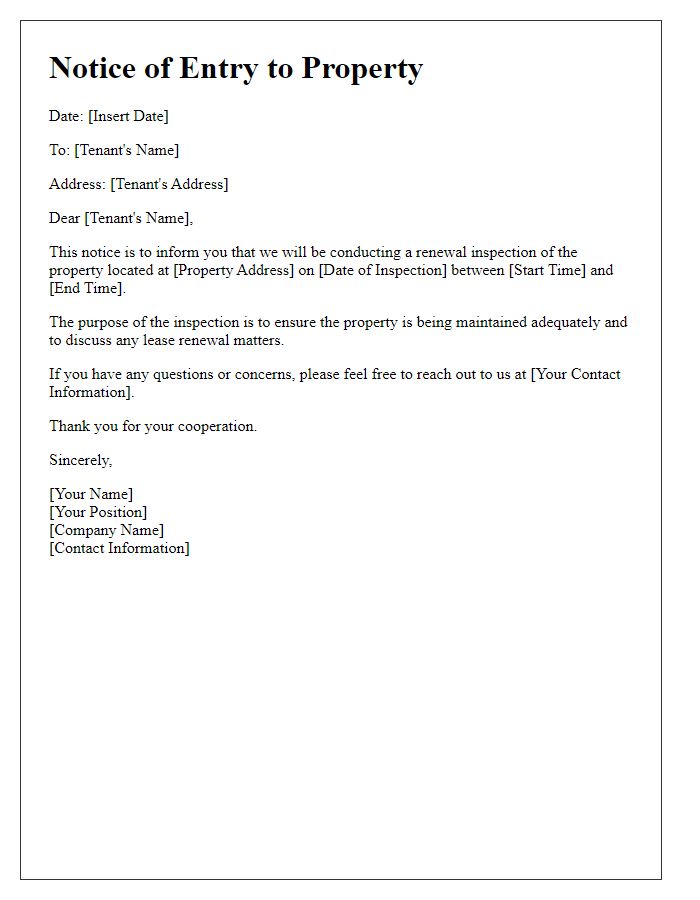
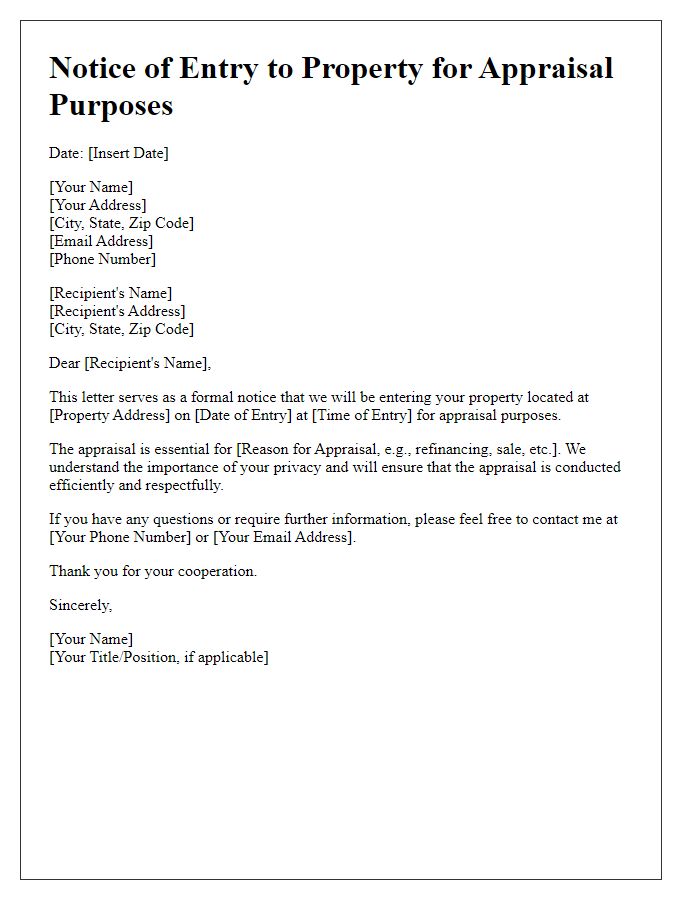
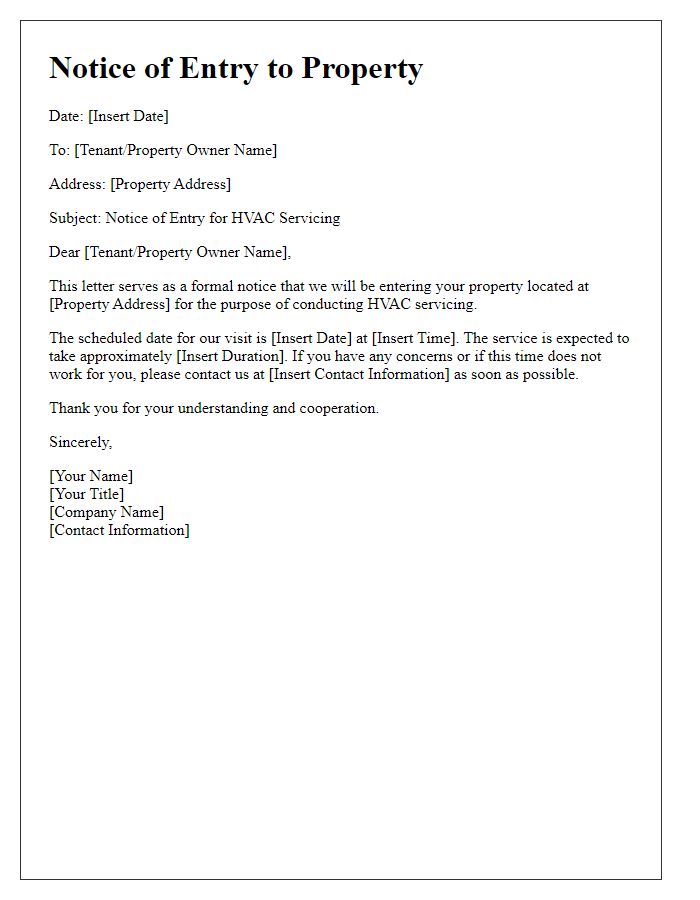
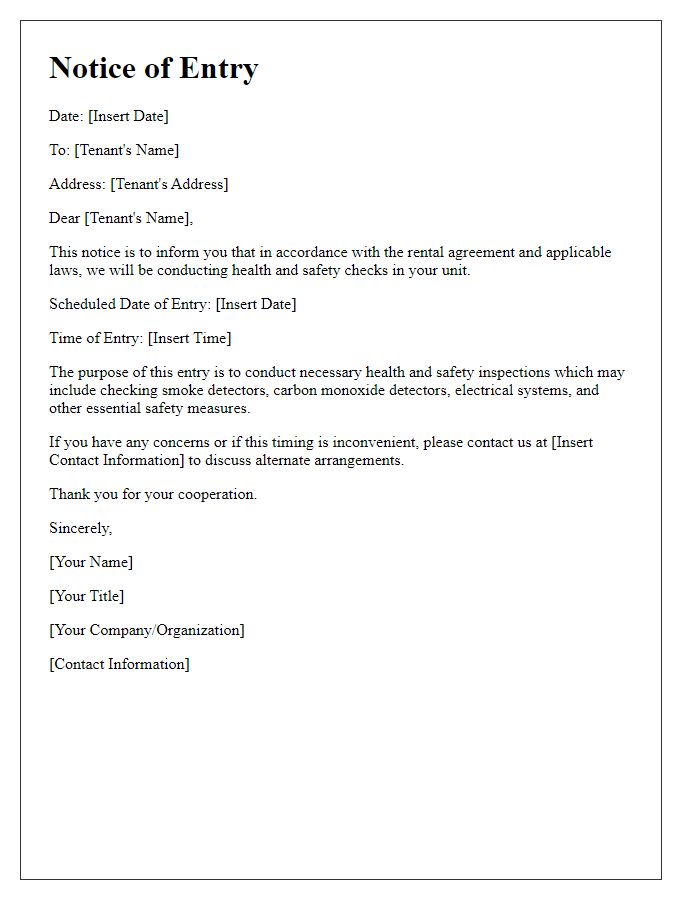

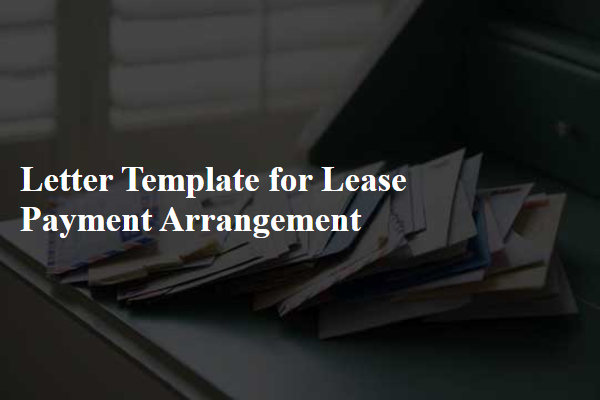
Comments